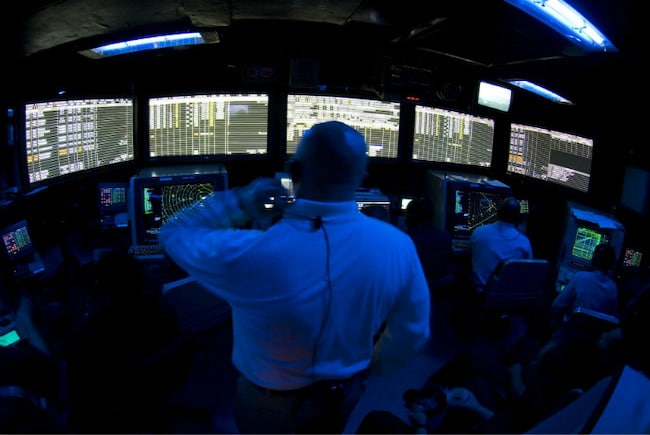
Representational Image (Thinkstock)
London:
Britain is to hold an independent inquiry into a computer failure at its air traffic control hub which caused chaos for thousands of travellers last week, aviation officials said Monday.
The 43-minute outage delayed departures, diverted arrivals and forced the cancellation of dozens of flights, hitting 10,000 passengers at Heathrow on Friday.
The inquiry was announced by Britain's Civil Aviation Authority (CAA), which said it would look at the root cause, response and whether lessons had been learned following a similar incident last December.
There are growing questions about the age and efficiency of the software used by Britain's main air traffic controller NATS at its headquarters in Swanwick, southern England. Some of it reportedly dates back to the 1960s.
Prime Minister David Cameron called for a thorough investigation.
"Our skies and air traffic control are highly important business and we need to look at it very, very carefully," he said.
Speaking to the BBC, Business Secretary Vince Cable accused NATS of "skimping" on investment and running "ancient computer systems which then crash".
But NATS chief executive Richard Deakin insisted it was set to invest £575 million (727 million euros, $903 million) over the next five years on updating its systems.
"This was one error, or limitation should I say, in four million lines of code," he told the BBC. "I don't think additional funding would have solved that problem."
The government is also facing questions about whether the aftermath of the problem was exacerbated by a lack of spare capacity at London Heathrow, one of the world's busiest air hubs.
Ministers have long faced pressure from business to tackle the problem, with a review last year recommending that one extra runway be built in southeast England by 2030.
But the politically sensitive decision about whether to build it at Heathrow or elsewhere will not be taken until after next year's general election.
During an appearance before the House of Commons Transport Select Committee, Transport Secretary Patrick McLoughlin was questioned about the issue and seemed to acknowledge it played a part.
"The suddenness in this case caused the problem," he said. "I don't recall a time in the last 20 years when Heathrow had spare capacity."
The 43-minute outage delayed departures, diverted arrivals and forced the cancellation of dozens of flights, hitting 10,000 passengers at Heathrow on Friday.
The inquiry was announced by Britain's Civil Aviation Authority (CAA), which said it would look at the root cause, response and whether lessons had been learned following a similar incident last December.
There are growing questions about the age and efficiency of the software used by Britain's main air traffic controller NATS at its headquarters in Swanwick, southern England. Some of it reportedly dates back to the 1960s.
Prime Minister David Cameron called for a thorough investigation.
"Our skies and air traffic control are highly important business and we need to look at it very, very carefully," he said.
Speaking to the BBC, Business Secretary Vince Cable accused NATS of "skimping" on investment and running "ancient computer systems which then crash".
But NATS chief executive Richard Deakin insisted it was set to invest £575 million (727 million euros, $903 million) over the next five years on updating its systems.
"This was one error, or limitation should I say, in four million lines of code," he told the BBC. "I don't think additional funding would have solved that problem."
The government is also facing questions about whether the aftermath of the problem was exacerbated by a lack of spare capacity at London Heathrow, one of the world's busiest air hubs.
Ministers have long faced pressure from business to tackle the problem, with a review last year recommending that one extra runway be built in southeast England by 2030.
But the politically sensitive decision about whether to build it at Heathrow or elsewhere will not be taken until after next year's general election.
During an appearance before the House of Commons Transport Select Committee, Transport Secretary Patrick McLoughlin was questioned about the issue and seemed to acknowledge it played a part.
"The suddenness in this case caused the problem," he said. "I don't recall a time in the last 20 years when Heathrow had spare capacity."
Track Latest News Live on NDTV.com and get news updates from India and around the world

